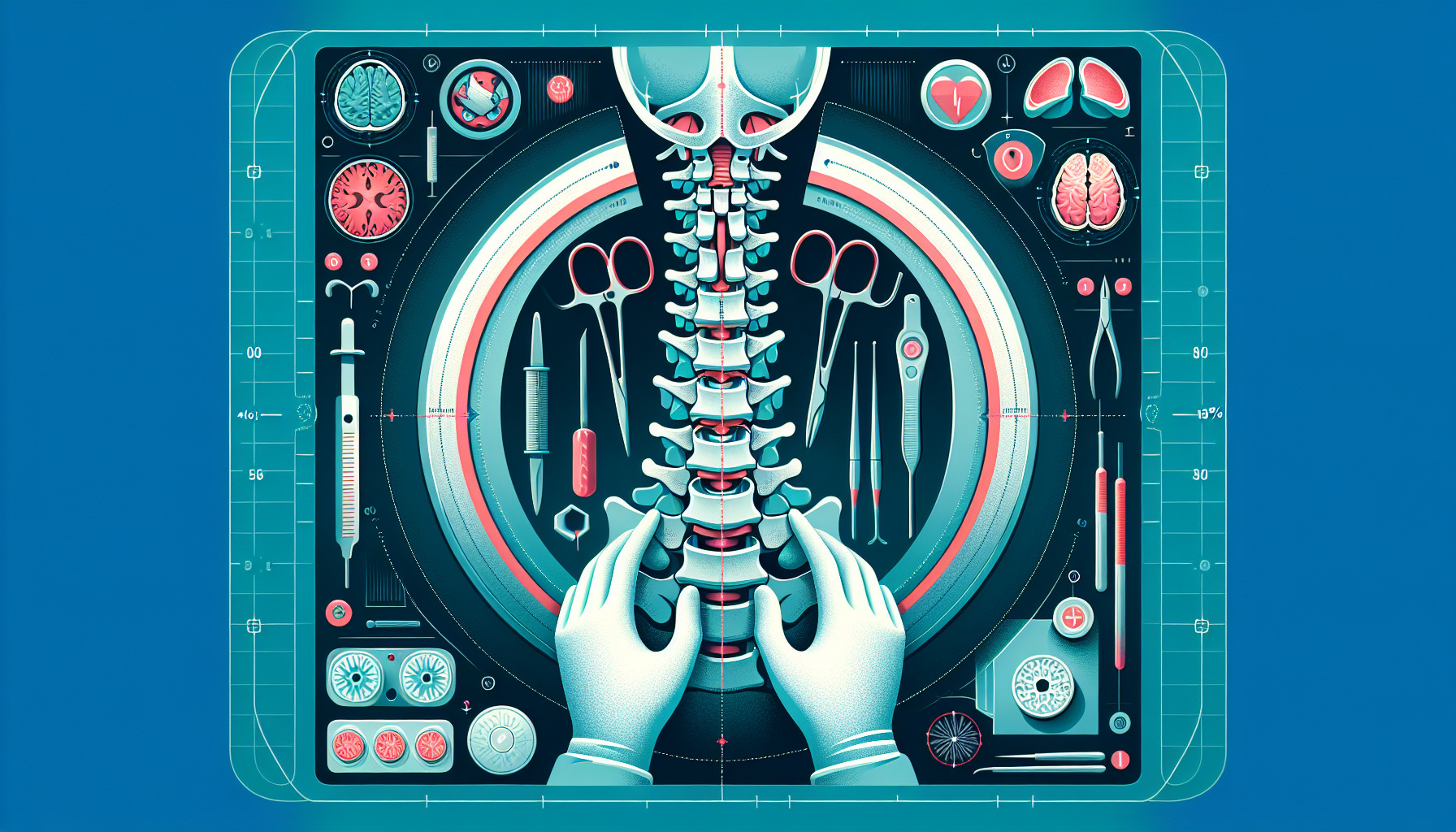Our Summary
This study looked at patients who had undergone a specific type of back surgery, known as posterior spinal fusion (PSF), and who needed to be admitted to the intensive care unit (ICU) afterwards. The researchers wanted to figure out the types of bacteria that were causing infections at the surgery site, and what factors made these infections more likely.
They looked at the medical records of almost 4,000 patients who had this surgery between 2000 and 2015. They collected information about the patients’ age, sex, and other health conditions, as well as details about their surgery and recovery.
They found that certain factors – such as having anemia, needing a larger portion of the spine fused, having surgery on the neck, and experiencing a leak of the fluid that surrounds the brain and spinal cord during surgery – made it more likely that patients would need to go to the ICU. On the other hand, using minimally invasive surgical techniques made ICU admission less likely.
The researchers also found that the amount of time it took for an infection to occur after surgery was the same for patients in the ICU and those who didn’t need ICU care. The types of bacteria causing the infections were also similar in both groups.
However, patients with more health problems were more likely to get an infection, be readmitted to the hospital, or need more surgery. In fact, patients with the highest number of health problems were three times more likely to get an infection than those with the fewest health problems.
The study concluded that the decision to admit a patient to the ICU after this type of surgery is mostly based on the specifics of the procedure itself. Patients in the ICU are more likely to get an infection, but the number and severity of their other health conditions also play a big part in this. This suggests that medical professionals need to carefully consider a patient’s overall health when planning and carrying out this type of surgery.
FAQs
- What factors are associated with ICU admission after posterior spinal fusion surgery?
- Is the risk of surgical site infection (SSI) higher for patients admitted to the ICU postoperatively?
- How does comorbid disease burden impact the risk of SSI in patients who undergo posterior spinal fusion surgery?
Doctor’s Tip
A helpful tip a doctor might tell a patient about spinal fusion is to follow postoperative care instructions carefully to reduce the risk of surgical site infection. This includes keeping the surgical site clean and dry, taking prescribed medications as directed, and attending follow-up appointments with your healthcare provider. It’s also important to maintain a healthy lifestyle, including eating a balanced diet, staying active, and avoiding smoking, as these factors can impact healing and recovery after surgery.
Suitable For
Patients who are typically recommended spinal fusion are those with severe spinal deformities, spinal instability, degenerative disc disease, spinal tumors, fractures, or other conditions that cause significant pain and functional limitations. Additionally, patients who have not responded to conservative treatments such as physical therapy, medication, and injections may also be candidates for spinal fusion surgery. Patients with a higher comorbidity burden, such as anemia, may be at higher risk for complications such as surgical site infections and may require closer monitoring postoperatively, potentially leading to admission to the intensive care unit (ICU).
Timeline
Before spinal fusion:
- Patient undergoes preoperative evaluation and preparation, including medical history review and imaging studies.
- Patient may undergo physical therapy and pain management to prepare for surgery.
- Patient undergoes spinal fusion surgery, which may involve the fusion of multiple vertebrae.
- Patient may be admitted to the intensive care unit (ICU) postoperatively, depending on the complexity of the surgery and their medical condition.
After spinal fusion:
- Patient is closely monitored in the ICU for complications and pain management.
- Patient is transferred to a regular hospital room for further recovery.
- Patient undergoes physical therapy and rehabilitation to regain strength and mobility.
- Patient is discharged from the hospital and continues with outpatient physical therapy.
- Patient follows up with their surgeon for postoperative appointments and monitoring of the fusion site.
- Patient may experience improvement in symptoms related to their spinal condition.
What to Ask Your Doctor
- What are the potential risks and complications of spinal fusion surgery?
- How long is the recovery process after spinal fusion surgery?
- Will I need to stay in the intensive care unit (ICU) after the surgery?
- What factors determine whether a patient needs to be admitted to the ICU postoperatively?
- How will my pain be managed after the surgery?
- What is the typical timeline for returning to normal activities after spinal fusion surgery?
- What signs or symptoms should I watch for that may indicate a surgical site infection?
- How often will I need follow-up appointments after the surgery?
- Are there any lifestyle changes or precautions I should take after spinal fusion surgery?
- What is the long-term outlook for patients who undergo spinal fusion surgery?
Reference
Authors: Cloney MB, Hopkins B, Shlobin NA, Kelsten M, Goergen J, Driscoll C, Svet M, Ordon M, Koski T, Dahdaleh NS. Journal: Oper Neurosurg. 2022 Oct 1;23(4):312-317. doi: 10.1227/ons.0000000000000341. Epub 2022 Aug 10. PMID: 36103357
